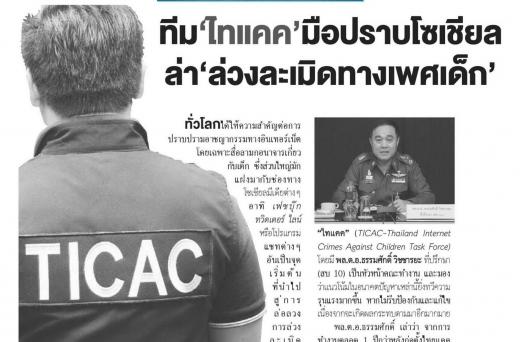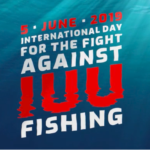
Thailand’s determination to protect children and stamp out abuse scored another victory last week when a month-long collaborative investigation by the Royal Thai Police and the United States Federal Bureau of Investigation (FBI) resulted in the arrests of 13 people – nine Thai nationals and four American citizens – on charges of child exploitation, trafficking and pornography.
“Every year the Thai police’s capacity for investigation into these issues gets better,” said John M. Schachnovsky, the FBI legal attaché in Thailand. “While it is an unfortunate number to see, we are pleased with the number of arrests.”
The collaborative investigation was part of a FBI program called “Operation Cross-Country XI (OCC),” and was conducted for a second successive year in Thailand from September 7 to October 14. The 11-year-old program has been implemented in several countries including Canada, the United Kingdom, Cambodia and the Philippines.
In the autumn of 2016, the FBI published a four-part series on its website praising Thailand’s improved, systematic and serious efforts to confront and defeat the child sex trade. Once considered weak on fighting child exploitation, the Kingdom has passed new laws, strengthened existing laws, invested in training and equipment for police officers, educated the public and taken a range of actions to bolster its protection of children.
One key to the more effective Thai efforts has been the work of the Thailand Internet Crimes Against Children (TICAC) department of the Royal Thai Police. Established in January 2016, its brief includes fighting child sexual abuse, human trafficking and possession of child pornography through cyber channels.
Police General Tamasak Wicharaya, who heads TICAC, said the agency worked on 24 cases last year and 32 cases as of Oct 31 this year. The investigations have originated from tip-offs on 183 incidents, including 124 that came from overseas. At least 57 suspects have been identified, said Tamasak, who is also an acting deputy commissioner-general of the Royal Thai Police.
TICAC has earned the trust of the FBI and other international law enforcement and civil society groups. “We do not work just to get a conviction. We consult NGOs and experts to make sure we do no harm to victims, who are children. That’s why we do not contact the media during the operations. We care how a child will fare if his father, for example, is arrested,” said Thakoon Nimsomboon, head of TICAC operations.
The U.S. State Department aided the work of Thai law enforcement, and all law enforcement, when it recently announced that America’s registered child sex offenders will have to use passports identifying them for their crimes when traveling overseas.




